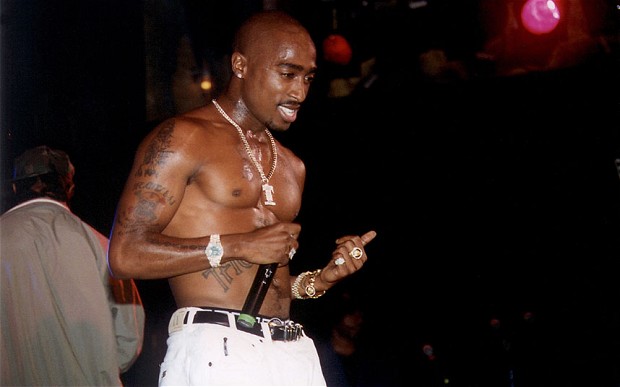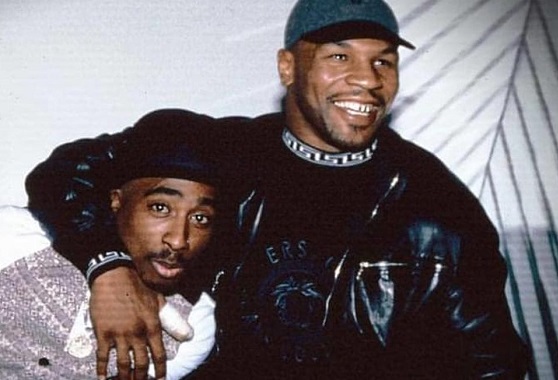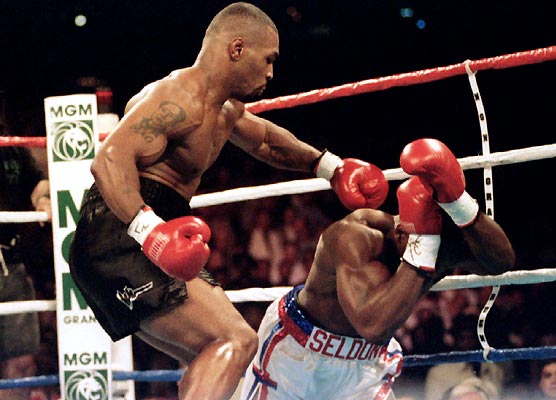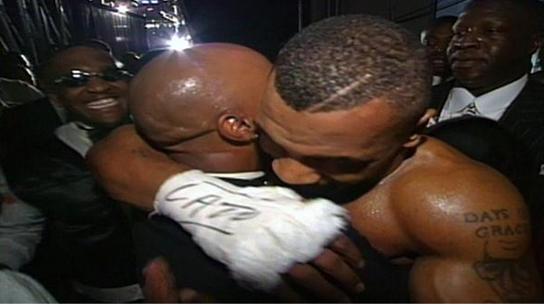A part of ESPN’s acclaimed 30 for 30 collection, One Night time in Vegas presents followers of boxing and Mike Tyson one thing apart from a standard documentary on the exploits of “Iron Mike,” each out and in of the ring. Director Reggie Rock Bythewood as a substitute pursues a story which conflates Tyson’s persona and profession arc with that of famend rapper Tupac Shakur, who was fatally shot on the Las Vegas strip on this date following Tyson’s 1996 bout with Bruce Seldon. Tupac not solely attended the struggle but in addition recorded a particular music for Mike’s ring entrance that evening.
Bythewood’s movie captures the putting private {and professional} convergence of Tyson and Tupac, with commentary from a bevy of buddies and associates, each well-known and obscure. The place it fails is thru its incapacity to probe the psychology of the boxing-rap confluence it tries so exhausting to convey, which leaves the viewer feeling that, whereas a lot has been surveyed, little has been revealed.
“Mike is the hip hop champion,” celebrated rapper Nas says close to the start of the movie, clearly nonetheless considerably in awe of Tyson’s violent combating fashion. (Apparently, Tupac typically disparaged Nas when he was alive.) This isn’t an empty assertion. Born into poverty within the hellacious Brownsville part of Brooklyn, a hip-hop hotbed, Tyson’s rise mirrored the paths of so many profitable rappers throughout the late 1980’s, when rap music was metastasizing into the aggressive style whose machismo he would personify.

It appears completely pure that boxing and rap could be synergized, since there are apparent hyperlinks between the game and the artwork: each require their practitioners to extract a requisite quantity of rage and audacity from their darkest private wells as a way to talk as forcibly as potential, whether or not by fists or by mouth, and with out shedding full management. Boxing, as Tyson has all the time maintained, is an artwork.
Regardless of having not too long ago regained the heavyweight championship with a brutal knockout over a terrified Frank Bruno, the post-Buster Douglas, post-prison Mike Tyson was not unconquerable. This didn’t imply, nevertheless, that the phantasm of his invincibility didn’t persist. Popping out of jail, Tyson appeared extra menacing than earlier than, boasting an improved physique and a goatee that made him seem older and colder trying, his snarl now much more visceral. Previous to the Seldon match, referee Richard Steele remembered how “as quickly as I walked in [to Seldon’s room] I may really feel the strain…I may see the nervousness.”

With just one loss in his profession, Tyson’s popularity for ferocity hadn’t abated, and Seldon’s tentative method within the ring gestures to the facility a popularity can have in rendering an opponent impotent. Tyson scored a primary spherical knockout after a collection of innocuous-looking punches left a dazed Seldon unable to proceed.
If one of many documentary’s shortcomings is its reliance on too many cameos and brief interviews, its remedy of Seldon is commendable. With a face that bears the scars of a tough life, the reflective ex-champion will get ample display screen time, and his recollections are among the most compelling. Whereas he’s, in the long run, an afterthought in boxing historical past, the combination of his narrative into these of Tyson and Tupac makes for a extra full story, nevertheless anticlimactic the struggle was.

The place One Night time in Vegas errs is in its reliance on too many voices, whose disjointed commentaries stop the movie from reaching coherence or perhaps a clear focus. For instance, though Dr. Eric Dyson says that Tupac and Tyson had been “utter mirrors of one another,” he gives little to make us perceive how that is so and his commentary, reliant as it’s on archetypes, is simply too reductive.
Whereas I don’t agree with Dyson’s opinion that the rapper and the boxer shared utterly symbiotic personalities there was one important similarity that ought to have been investigated additional—how each had been ruined by their incapacity to manage the very demon that made them so formidable. With out the self-discipline that enabled his rise, the post-Seldon Mike Tyson gave himself over to his personal darkness, repeatedly embarrassing himself out and in of the ring. Tupac, having been emboldened by Suge Knight and the gangster ethos of Dying Row Information, had already long-indulged his personal demise intuition, and his homicide served because the terrible end result of a life and profession taken in a dangerous path. Each males had been pushed by forces that required tempering and restraint, however the very energies that made their success potential overcame them.
One Night time in Vegas stays a worthy movie for these within the cultural interaction between sports activities and music. At occasions the documentary overtly forces the hyperlink and the impassioned segments of spoken phrase poetry are little greater than awkward, however a logical connection might be drawn between Tyson and Tupac by their friendship and the way every represented a very bellicose type of black tradition.

Tupac’s demise is an indictment of the macho bravado of the rap milieu he got here to epitomize, which was born on the street, commercialized on file, after which fatally reaffirmed in actual life by his homicide. Tyson’s post-Seldon downfall was abetted by his subservience to the hostile and empty tenets prized by this tradition. Who can overlook his absurd press convention earlier than the Lennox Lewis struggle the place, after allegedly biting Lewis, an unstable and insecure Tyson shouted racial epithets at a white reporter whereas calling himself “the final word”?
Boxers and rappers want self-discipline as the required counterweight to their aggression and egotism, a lesson Tupac seemingly forgot. Whether or not Tyson ever realized that is tough to know, given his ceaselessly unreliable commentary. That he stays alive right now, and has reinvented himself, is maybe his best victory.
— Eliott McCormick

































